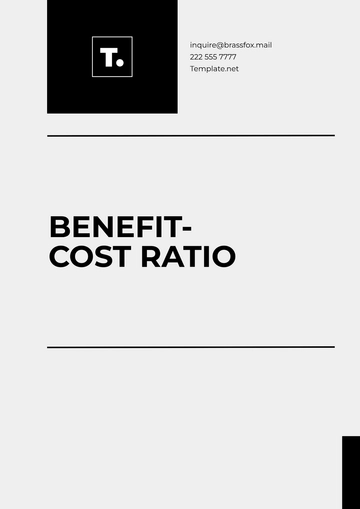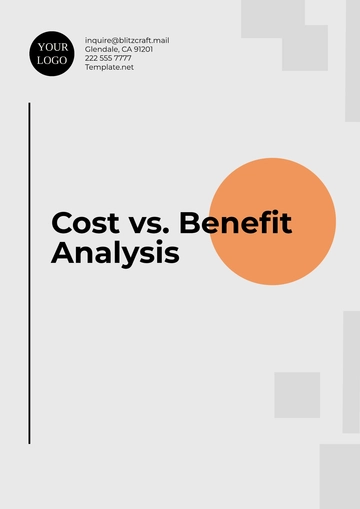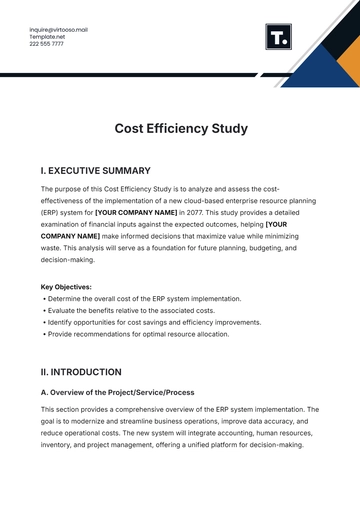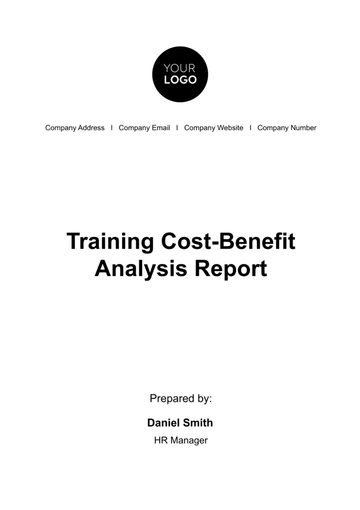Free Car Rental Cost Benefit Analysis
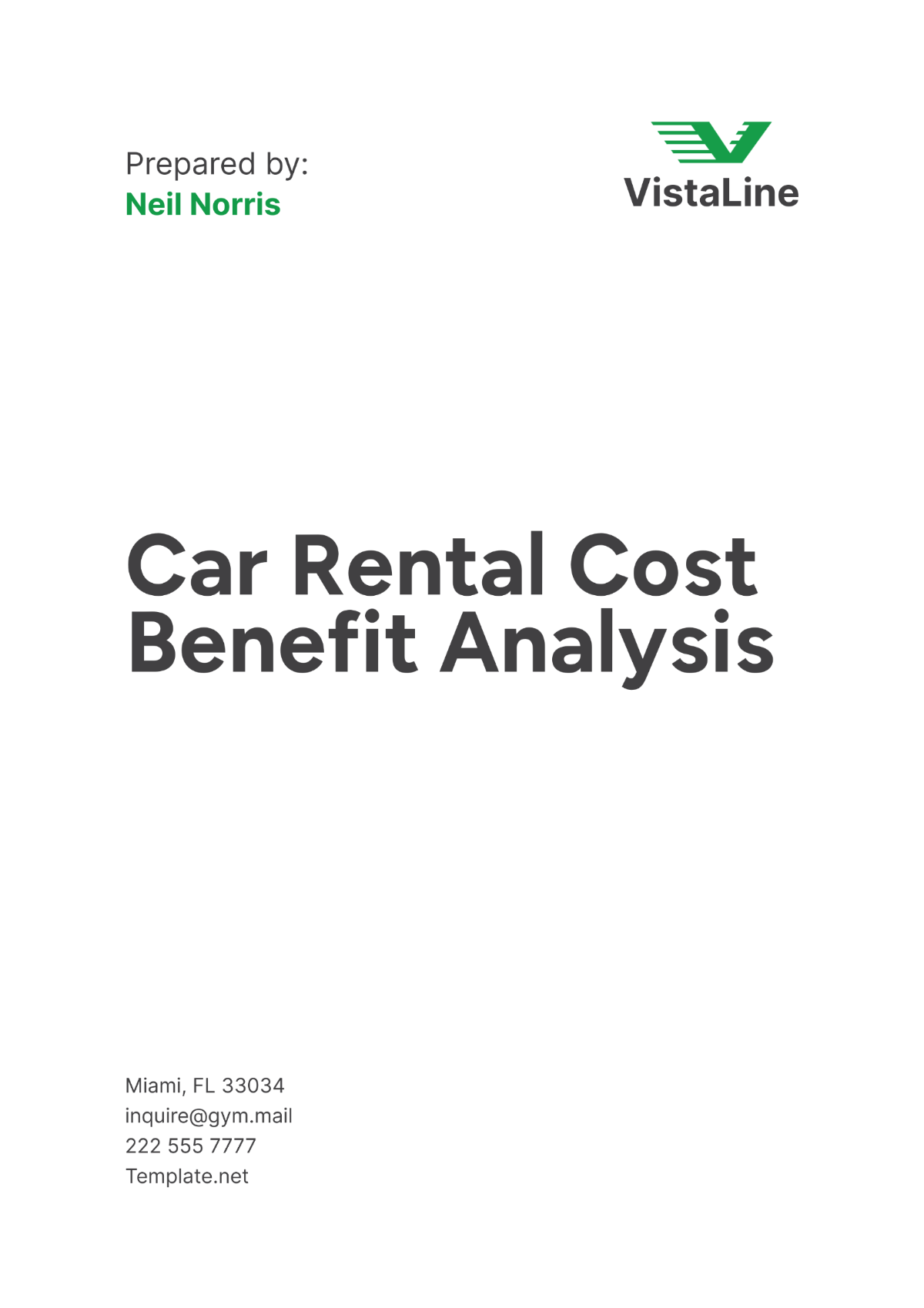
I. Introduction
Car rentals have emerged as a convenient and flexible option for individuals and businesses needing short-term transportation solutions. Whether for travel, business trips, or special occasions, renting a vehicle offers the advantage of access to a diverse fleet without the long-term financial commitment and maintenance responsibilities associated with ownership. The car rental industry has grown significantly, driven by increasing consumer demand for mobility solutions that provide both convenience and cost-efficiency.
Understanding the financial implications of car rentals is critical to ensuring that renting a vehicle is a viable option compared to owning one. This comprehensive analysis by [Your Company Name] will examine various cost factors such as vehicle acquisition, maintenance, insurance, and depreciation. Additionally, it will evaluate the benefits, including revenue generation, market expansion opportunities, and enhanced brand recognition. By comparing the costs and benefits, this analysis aims to provide a clear understanding of the economic viability of car rentals, helping businesses make informed decisions about their transportation strategies and ensuring optimal resource allocation.
II. Cost Analysis
Evaluating the costs associated with car rentals is crucial for understanding their financial viability. Rental fees can fluctuate based on factors such as vehicle type, rental duration, and seasonal demand. Additionally, renters must account for a variety of extra charges that can significantly impact the overall cost. These additional expenses include insurance, fuel, and mileage fees, as well as charges for equipment rentals and taxes. A thorough analysis of both the primary and secondary costs will provide a comprehensive understanding of the total financial commitment involved in renting a vehicle.
A Daily Rental Fees
Daily rental fees are the primary cost associated with car rentals and can vary widely based on several factors. Understanding these factors is crucial for accurately estimating the cost of renting a vehicle. The table below outlines typical daily rental fees based on car type, rental duration, location, and seasonal demand.
Factor | Cost (per day) |
|---|---|
Car Type (Economy) | $[0] |
Car Type (Compact) | $[0] |
Car Type (SUV) | $[0] |
Car Type (Luxury) | $[0] |
Rental Duration | Varies (Discounts for longer rentals) |
Location of Rental | Varies (Higher in urban areas) |
Time of Year | Varies (Higher during peak seasons) |
B Additional Charges
Additional charges are important to consider when evaluating the total cost of renting a vehicle. These charges can significantly impact the overall expense and vary depending on factors like insurance, fuel, and additional services. The table below provides a detailed overview of potential additional charges associated with car rentals.
Charge | Example Cost |
|---|---|
Insurance Coverage | $[0] per day |
Fuel Charges | $[0] per mile or refill fee |
Mileage Fees | $[0] per extra mile |
Late/Early Return Fees | $[0] |
Additional Driver Fees | $[0] per day |
GPS and Equipment Rentals | $[0] per day |
Taxes and Surcharges | [0]% of rental cost |
III.. Benefit Analysis
Renting a car offers numerous benefits that make it an attractive option for both individuals and businesses. This section will explore the primary advantages of car rentals, focusing on the flexibility and convenience they provide, as well as the cost savings achievable in specific scenarios. By understanding these benefits, consumers can make informed decisions about when and why renting a vehicle may be the best choice.
A. Flexibility and Convenience
Car rentals provide significant flexibility and convenience, making them a practical choice for various needs:
Availability of Various Car Types
Car rental companies offer a wide range of vehicle options, from economy cars to luxury models, SUVs, and vans. This diversity ensures that customers can select the perfect vehicle for their specific needs, whether it’s for a business trip, family vacation, or special event. This availability eliminates the limitations of owning a single type of vehicle and allows customers to match the vehicle to their immediate requirements.
On-Demand Access to Vehicles
Unlike car ownership, renting provides on-demand access to vehicles. Customers can rent a car for a few hours, days, or even weeks, depending on their needs. This flexibility is especially beneficial for those who do not need a vehicle on a daily basis, as they can avoid the costs and responsibilities associated with ownership while still having access to a vehicle whenever necessary.
Convenient Pick-Up and Drop-Off Locations
Car rental companies typically have numerous pick-up and drop-off locations, including airports, city centers, and neighborhood branches. These locations often have extended hours, making it convenient for customers to rent and return vehicles at times that suit their schedules. This convenience is a major advantage for travelers and busy individuals who need flexible rental options.
B. Cost Savings in Specific Scenarios
Renting a car can be more cost-effective than owning one in various situations:
Short Trips
For short trips, renting a car can be significantly cheaper than owning one. Car ownership involves ongoing expenses such as monthly loan payments, insurance, maintenance, and depreciation. For individuals who do not drive frequently, renting a car for occasional use can result in substantial savings by avoiding these fixed costs.
Travel to High-Cost Destinations
In cities with high parking fees or expensive public transportation, renting a car can be a more economical choice. Tourists and business travelers can save on the high costs of city parking and transit passes by renting a car for the duration of their stay. This can also provide greater convenience and mobility, allowing them to explore the area more freely.
Periodic Need for Different Types of Vehicles
Renting is ideal for those who occasionally need different types of vehicles. For example, someone moving to a new home might need a van or truck, while for a luxury trip or special event, a high-end vehicle might be preferred. Renting allows access to the appropriate vehicle without the need to purchase one, providing both financial savings and flexibility.
The flexibility and convenience of car rentals, combined with potential cost savings in specific scenarios, make them a compelling option for many. By offering a variety of vehicle choices, on-demand access, and convenient locations, car rentals provide practical and economic benefits that meet diverse transportation needs. This benefit analysis highlights the value proposition of car rentals, demonstrating their effectiveness as a viable and cost-efficient transportation solution.
IV. Comparative Cost Analysis
When deciding between renting and owning a car, it is essential to compare the costs associated with each option. This section provides a detailed comparison of typical expenses for car rentals versus car ownership over various timeframes. By examining the costs of vehicle purchase, insurance, fuel, maintenance, and depreciation, this analysis helps highlight the financial implications of each choice, enabling a more informed decision based on individual needs and circumstances.
The table below compares the typical costs of renting a car versus owning a car over various timeframes:
Cost Components | Car Rental (Per Day) | Car Ownership (Per Year) |
|---|---|---|
Vehicle Cost | $[0] - $[0] | $[0] - $[0]* |
Insurance | $[0] - $[0] | $[0] - $[0] |
Fuel | $[0] - $[0] | $[0] - $[0] |
Maintenance & Repairs | Included | $[0] - $[0] |
Depreciation | Included | $[0] - $[0]* |
Total Cost | $[0] - $[0] per day | $[0] - $[0] per year |
*Depreciation and vehicle cost vary based on the type and model of the car
V. Considerations for Different Use Cases
Choosing the right transportation option can greatly impact the success and enjoyment of both business and leisure travel. Understanding the specific advantages of car rentals for different scenarios is essential for making informed decisions. This section explores how car rentals can meet the unique needs of business travel and vacation trips, offering insights into tax benefits, vehicle features, and overall flexibility. By evaluating these considerations, travelers can better assess whether renting a car is the best choice for their particular use case.
A. Business Travel
For business purposes, car rentals offer several distinct advantages that can enhance both the functionality and effectiveness of business trips:
Tax Deductions on Rental Expenses
Car rentals for business travel can be tax-deductible, which can help reduce overall travel expenses. According to IRS regulations, rental costs are generally deductible as a business expense if the vehicle is used for business purposes. This includes the cost of the rental itself, and often other related expenses like fuel and insurance. Keeping detailed records of these expenses can maximize the potential for deductions.
Access to Advanced Vehicle Features
Renting a car allows business travelers to choose vehicles with advanced features that might not be available in their personal cars. This includes options like GPS navigation systems, Bluetooth connectivity, and premium audio systems. These features can facilitate efficient travel, enhance client meetings, and improve overall comfort during business trips.
Flexibility in Vehicle Selection
Car rentals provide the flexibility to select the most appropriate vehicle for different business needs. Whether you need a compact car for a solo trip, a luxury vehicle for high-profile meetings, or an SUV for transporting clients, rental services offer a wide range of vehicles. This allows business travelers to match the vehicle to their specific requirements, ensuring they present a professional image and have the necessary resources for their tasks.
B. Vacation and Leisure Trips
Renting a car for vacation and leisure trips offers numerous benefits that can enhance the travel experience:
Freedom to Explore at One’s Own Pace
Renting a car provides the freedom to explore destinations at your own pace, without being constrained by public transportation schedules or tour group itineraries. Travelers can create their own schedules, visit off-the-beaten-path locations, and enjoy spontaneous detours, which can lead to a more enjoyable and personalized travel experience.
Comfort of Choosing Vehicles That Fit the Trip’s Needs
Car rentals offer a range of vehicle options to suit different types of vacations. Whether you need a spacious SUV for a family road trip, a convertible for a scenic drive, or a fuel-efficient car for a budget-friendly getaway, rental companies can provide vehicles that match the specific needs of your vacation. This choice ensures comfort and convenience throughout the trip.
Potential Cost Savings Compared to Other Transportation Modes
Renting a car can be a cost-effective alternative to other forms of transportation for vacations. For example, in destinations with high costs for public transit or expensive tour packages, renting a car can provide a more economical solution. Additionally, having a rental car can reduce the need for expensive taxis or ride-share services, further lowering travel costs.
Car rentals offer significant benefits for both business travel and leisure trips. For business travelers, they provide tax benefits, advanced features, and flexible vehicle options. For vacationers, rentals offer the freedom to explore, the comfort of choosing the right vehicle, and potential cost savings compared to other transportation modes. Understanding these considerations can help travelers make the most of their rental experience, ensuring they meet their specific needs effectively.
VI. Hidden Costs and Risks
While car rentals offer flexibility and convenience, it is crucial to be aware of potential hidden costs and risks associated with this option. These can sometimes offset the perceived benefits and make renting a car more expensive or complicated than anticipated. Understanding these hidden aspects can help consumers make more informed decisions and avoid unpleasant surprises. This section will delve into unexpected fees, high repair costs, liability issues, and the inconvenience of limited vehicle availability during peak seasons.
A. Unexpected Fees and Charges
Renting a car can sometimes come with unexpected fees and charges that significantly increase the overall cost. Many rental agreements include additional fees that may not be immediately apparent. For instance, renters may face extra charges for:
Late returns
Early returns
Not returning the car with a full tank of fuel
Additional driver fees
Underage driver fees
Airport surcharges
To avoid these surprises, it is important to carefully read the rental agreement and understand all potential charges before signing.
B. High Costs of Repairs
Repair costs can also be a significant risk when renting a car. If the rental insurance does not cover certain damages, the renter may be responsible for high repair costs. This can include anything from minor scratches to major accidents. While rental companies offer various insurance options, they can be expensive and may not cover all scenarios. Renters should thoroughly review the insurance policy and consider purchasing additional coverage if necessary to protect themselves from unforeseen repair costs.
C. Potential Liability Issues
Liability issues in case of accidents present another risk. If an accident occurs while driving a rental car, the renter could be held liable for damages to the rental vehicle, other vehicles, property, and medical expenses. Standard rental insurance may not fully cover these liabilities, leading to substantial out-of-pocket costs. Renters should check their personal auto insurance and credit card benefits to see if they provide supplemental coverage for rental cars. Additionally, considering third-party rental insurance policies can offer more comprehensive protection.
D. Inconvenience During Peak Seasons
During peak seasons, such as holidays and vacation periods, the availability of rental vehicles can be limited, leading to inconvenience. High demand can result in higher rental prices, reduced vehicle options, and the possibility of not getting a car at all. Planning and booking well in advance can help mitigate these issues, but it still poses a risk for travelers who need to rent a car on short notice.
VII. Recommendations
To maximize the benefits of car rentals while minimizing potential risks and costs, consider the following recommendations:
Compare Prices and Read Reviews: Before committing to a rental, compare prices from various rental companies. Use online platforms and apps to find the best deals and read customer reviews to gauge the quality of service. This can help you avoid companies with hidden fees and poor customer service.
Book Early: Booking your rental car well in advance, especially during peak seasons, can secure better rates and a wider selection of vehicles. Early booking often comes with discounts and ensures that you have the vehicle type you need.
Understand the Rental Agreement: Carefully read the rental agreement, including the fine print, to understand all potential charges and fees. Clarify any doubts with the rental company before signing. Pay attention to fuel policies, mileage limits, and penalties for late or early returns.
Consider Insurance Options: Evaluate the insurance options provided by the rental company and compare them with your personal auto insurance and credit card benefits. Opt for additional coverage if necessary to protect yourself from high repair costs and liability issues in case of accidents.
Inspect the Vehicle: Before driving off, thoroughly inspect the rental vehicle for any pre-existing damage and ensure it is documented by the rental company. Taking photos or videos can serve as evidence and protect you from being charged for damages you did not cause.
Plan for Fuel and Mileage: Understand the fuel policy of the rental company and plan accordingly. Some companies require you to return the car with a full tank, while others may offer pre-paid fuel options. Also, be aware of mileage limits to avoid additional charges.
Choose the Right Vehicle: Select a vehicle that fits your needs and budget. An economy car is suitable for short city trips, while an SUV or minivan may be necessary for family vacations or moving. Avoid renting a larger or more luxurious vehicle than required to save on rental fees and fuel costs.
Use Membership Benefits: If you travel frequently, consider joining a rental car loyalty program. Memberships often come with perks such as discounts, free upgrades, and faster service. Additionally, some credit cards and travel clubs offer rental car discounts and benefits.
Return on Time: Ensure you return the rental car on time to avoid late fees. If you anticipate delays, contact the rental company to discuss your options. Some companies offer grace periods or flexible return times.
VIII. Conclusion
Car rentals present a practical and flexible solution for various transportation needs, whether for business travel, vacations, or specific occasions requiring different vehicle types. The benefits of car rentals, including convenience, on-demand access, and potential cost savings, make them an attractive alternative to owning a car, particularly for short-term or occasional use. By understanding the costs involved, such as daily rental fees and additional charges, consumers can better assess when renting is more economical than ownership.
However, it is crucial to be aware of the hidden costs and risks associated with car rentals, such as unexpected fees, high repair costs, liability issues, and limited vehicle availability during peak seasons. Making informed decisions by comparing prices, reading rental agreements carefully, considering insurance options, and planning ahead can help mitigate these risks. By following the recommendations provided, renters can maximize the benefits of car rentals while minimizing potential downsides. Ultimately, a thorough cost-benefit analysis will enable consumers to determine the most suitable transportation option for their specific needs and circumstances.
- 100% Customizable, free editor
- Access 1 Million+ Templates, photo’s & graphics
- Download or share as a template
- Click and replace photos, graphics, text, backgrounds
- Resize, crop, AI write & more
- Access advanced editor
Optimize your business decisions with the Car Rental Cost Benefit Analysis Template from Template.net. This editable and customizable template helps you create professional cost-benefit analyses for your car rental business. Editable in our Ai Editor Tool, it offers a user-friendly experience, making it easy to tailor to your specific needs. Make informed financial decisions with this essential analysis template.




